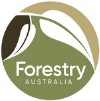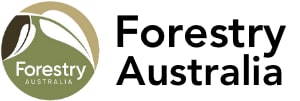
MEDIA RELEASE
Wednesday 28 August 2024
Forestry Australia welcomes further definition of active forest management
Forestry Australia has welcomed the publication of an academic paper looking at the issue of active management of forests.
The paper, Active management: a definition and considerations for implementation in forests of temperate Australia (Bennett et al. 2024) has been published in Forestry Australia’s scientific journal, Australian Forestry.
Acting President of Forestry Australia Dr Bill Jackson said ‘active management’ is a common term in Government and forest stakeholder reports, policies, and strategies in Australia and around the world, but up until now has not been well defined.
“The paper explores where active management sits in relation to a sometimes-confusing array of related concepts including passive management and adaptative management,” Dr Jackson said.
Dr Jackson said the paper answers questions around active management – and how it relates to forest management – by stating that active management is principally about human engagement in shaping forests and is deliberate tending of forests by humans for diverse purposes and goals relating to biodiversity conservation, ecosystem services and function including resilience.
“The definition reflects the need to ensure forests have ongoing attention and that appropriate management practices are applied,” Dr Jackson said.
“The definition allows for broad and inclusive approaches (including more ‘minimal intervention’ approaches) to forest management, which is in contrast to more rigid forest management approaches which may otherwise exclude communities or social and cultural practices.
“Australia’s changing social and environmental contexts and the shifting relationships of society with forests calls for a new vision for forests, clear definitions, and fresh, evidence-based approaches to forest management.
“This paper and definition will serve as a valuable resource for all forest and land managers, policy makers and stakeholders looking to incorporate active management into their practice.
“The authors note the importance of having an adaptive management framework to guide active management, delivering healthy and resilient forests and the environmental, social, economic and cultural benefits they provide in perpetuity,” Dr Jackson said.
Australian Forestry review article: Active management: a definition and considerations for implementation in forests of temperate Australia
Authors: L. T. Bennett, T. A. Fairman, R. M. Ford, R. J. Keenan, M.-S. Fletcher and C. R. Nitschke
The University of Melbourne
https://www.tandfonline.com/doi/full/10.1080/00049158.2024.2381846
ABOUT FORESTRY AUSTRALIA
Forestry Australia is an independent not-for-profit professional association of approximately 1,200 forest scientists, managers and growers. Individuals involved in nature conservation, resource and land management, Traditional Owner engagement, research, communication, carbon markets, farm forestry and education are welcome as members. Our members are committed to supporting healthy and resilient forests through evidence-based practice and the principles of active and adaptive forest management to generate environmental, social, cultural and economic outcomes in all forest types.
ABOUT DR BILL JACKSON
Bill Jackson is an adjunct Professor with the Tropical Forest and People Research Centre of the University of the Sunshine Coast and an independent consultant with over 40 years’ experience in forest conservation and management, protected area management and community development. Bill was the chief author for the Australia State of Environment Report 2016, and he held the positions of Chief Executive of Parks Victoria and Director of National Parks from late 2010 until mid-2015. Prior to his appointment to Parks Victoria, he was Deputy Director General of the International Union for Conservation of Nature (IUCN).
ENDS
For further information: Becher Townshend 0418 370 661

